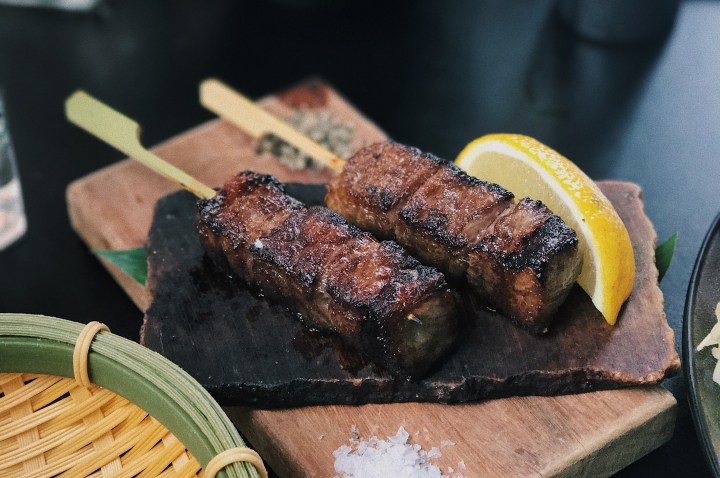CONVERSATION PIECE
US food firm is using DNA to prove the pedigree of Premium Beef

Here’s one for that lull in your dinner party chatter. An episode of the British sitcom Keeping Up Appearances comes to mind when digesting the news that an American food firm plans to use DNA samples from elite cattle to track your steak back to the farms the beasts grew up on. Are we to DNA-check the meat on our plates now before we tuck in? As for the chef’s face when you send it back to the kitchen with your waiter’s stammered ‘Customer says no, sorry’ – well, you wouldn’t want to be that waiter.
In an episode of Keeping Up Appearances, archetypal snob Hyacinth Bucket (“Bouquet!”) waits at her front door for the milkman’s arrival.
“Ah, yes! I thought I heard the milkman,” she says on espying the hapless man. “I wanted your superiors to find out which cow my milk comes from. I will not have my bottles coming from just any old animal. We passed a very photogenic herd recently grazing on the Earl of Crawford’s estate. Would you please ensure that in future my two pints daily come from them?”
We should bear that in mind when chewing over the latest news from the Food Police, at least the ones of the American persuasion.
Responding to consumer demands for traceability, Bloomberg reports, Tyson Foods Inc. in the US plans to use DNA samples from elite cattle to track steaks, roasts and even ground beef back to the ranches the animals grew up on.
Bloomberg continues:
Consumer research keeps showing that shoppers are demanding to know where their food comes from, said Kent Harrison, vice president of marketing and premium programmes at Tyson Fresh Meats. A majority of Americans want to know everything that’s in their food, and more are trying to buy healthy and socially conscious products, according to Nielsen.
Because the beef supply chain is fragmented, with different businesses in charge of growing, feeding and processing cattle, traceability back to farms is extraordinarily difficult, according to Harrison. The DNA programme should be seen by “people buying meat at retail and food service distribution as an assurance of quality”, he said.
Tyson’s Open Prairie brand, which sources animals raised with no antibiotics and no added hormones, keeps records tracing beef back to ranches. Now, samples the size of a grain of rice will be taken from carcasses at the processing facility, and a company called IdentiGEN will use proprietary sets of DNA markers – nature’s bar codes – to identify individual animals. The markers don’t change, whether the meat is cooked or processed.
Cattle sourced from the Open Prairie brand come mostly from independent ranchers in Montana, North Dakota, Oregon, Washington and Nebraska. They’re processed at Tyson’s Lexington, Nebraska plant. Open Prairie makes up less than 10 percent of Tyson’s beef supplies. But it’s the biggest no-antibiotics-ever program and growing fast, Harrison said.
Bloomberg concludes: Eventually, there could be more consumer applications for DNA tracking when the costs of sampling get cheaper, Harrison said.
Sure, we like to have food on our plates that has been ethically farmed (if we’re well off enough to be able to afford that)? But isn’t this taking things from the bovine to the ridiculous? DM



 Become an Insider
Become an Insider